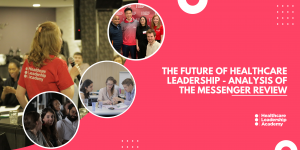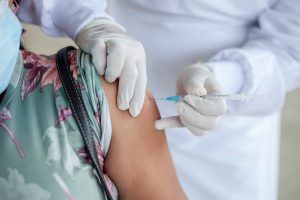Elizabeth Garrett Anderson (1836-1917) was a woman of firsts. Despite her desire to practice as a doctor, she was refused admission to medical school on the basis of her gender. Undiscouraged, she enrolled as a nursing student at Middlesex hospital. Before too long she was suspended, again for being a woman.
She persevered, studied privately and eventually obtained a license as an apothecary. This enabled her to campaign to have her medical qualification recognised by the College of Physicians. Determination and grit led her to become the first woman in Britain to be admitted to the Medical Register in 1865. No sooner had she been granted this, the Society of Apothecaries altered their rules to preclude further women following in Elizabeth’s footsteps.
Despite this accolade, it did not suffice as a medical degree to practice in Britain. In defiance, Elizabeth taught herself French and went to Paris, finally obtaining her medical degree in 1870, the first woman to receive a medical degree in France.
In 1873 she went on to create the New Hospital for Women in London and finally founded the London School of Medicine for Women alongside her peers Sophia Jex-Blake and the Blackwells. Testament to the will of these women, in 1876 legislation was passed to prohibit the exclusion of women from universities and medical schools.
Unfortunately, 150 years later gender inequality remains within the NHS. Change is needed to tackle the underlying causes so we can honour and continue the work of these women.
Garrett-Anderson would be astonished by today’s medical workforce—58% of doctors in training are women, but scratch the surface and many disparities are still present. NHS England reports a gender pay gap of 23%. Less than 25% of Medical Directors of Trust boards are women, despite there being gender equity amongst board members. Only 26.3% of Trust and Arm’s Length Body boards have appointed a female financial director. The list goes on.
I have experienced first-hand some of the difficulties women experience whilst progressing in their medical career. I am dual qualified as a dentist and doctor, and aspired to a career as a surgeon. Unfortunately for me, the struggles I faced in a male dominated speciality changed the direction of my career.
A weight of evidence shows gender inequality in the NHS. I have read the research and I have felt it first-hand. Yet, I have never heard it being discussed; not at work, not out of work, not by men, nor by women. Why don’t we talk about it? Why don’t we question it? Why is it not an open discussion? For the situation to change, first we need to talk about it.
The Women in Healthcare Leadership (WIHL) project is being led by myself and Dr Eleanor Budge, alongside six other health professionals. WIHL was formed to create a discursive and supportive environment for women wanting to take on leadership roles. We want to identify the barriers, pose tangible solutions and create resources to inspire and motivate. Our ultimate goal is to establish the opportunity for representative leadership in the NHS.
Today is International Women’s Day, a celebration of women’s achievements and a campaign for a gender balanced world. I can’t think of a better day to introduce the Women in Healthcare Leadership Project (WIHL). The world is taking notice and there is a palpable movement in the air from (#timesup #metoo and many more). The momentum is picking up and more than ever, it is critical to invest in women and men equally and end gender disparity.
If you would like find out more or get involved please tweet us @WomeninHL or get in contact by emailing wihl@thehealthcareleadership.academy. All of our content is available at TheHealthcareLeadership.Academy/WIHL.
This article was written by Eleanor Budge and Dr Pooja Jassal-Prior and published on the Healthcare Leadership Academy blog, re-posted with permission.





